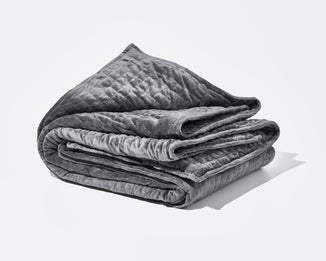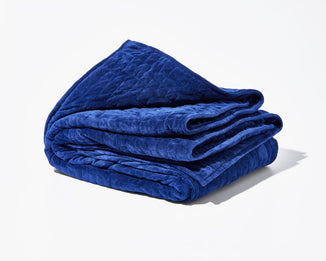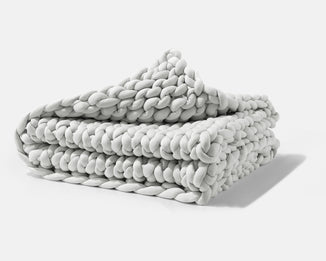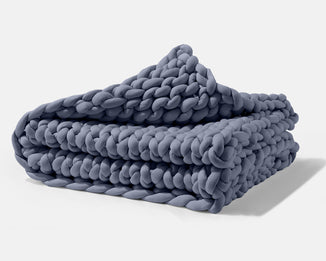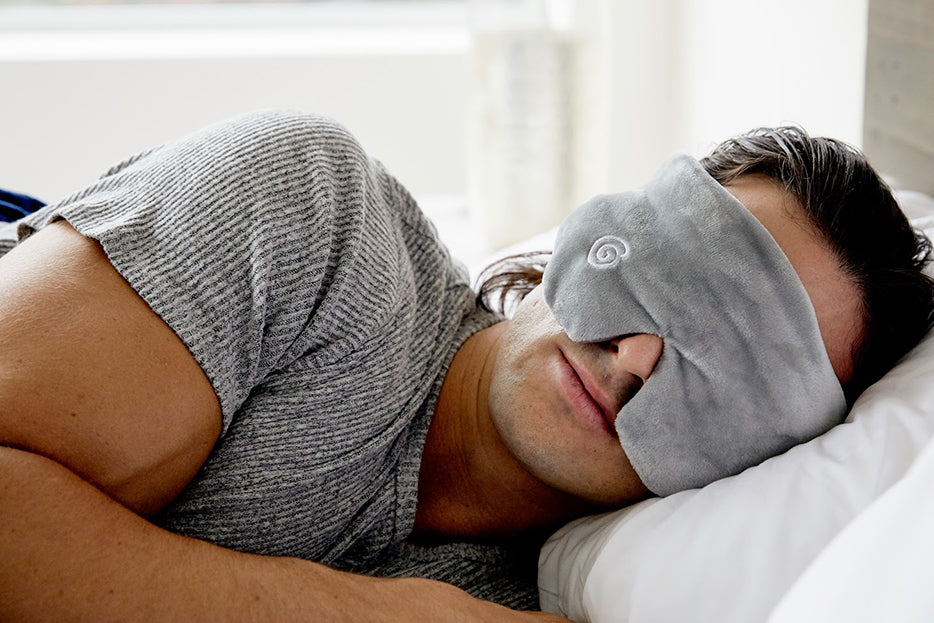
Sep 24, 2021
Are Naps Good for You? Here’s Your Answer
Ah, naps. It seems like you either love them or hate them. Those who have mastered the art of the midday doze maintain that it’s an excellent way to boost mental clarity and make up for lost sleep, while critics say that lying down for a nap isn’t as harmless as we might think.
So, who is right? Are naps good for you? Or should you be skipping your daytime snooze in the hopes of achieving better nighttime sleep? Read on as we explore the benefits and potential drawbacks of napping during the day — plus, a few tips to help you take your nap game to the next level (hint: snuggling up in a weighted throw blanket can maximize your midday snooze!).
Get Better Snooze with a Weighted Throw Blanket
Are Naps Good for You?
If you love taking naps, you’re not alone. Napping is a common activity in the United States, with about one-half of the adult population reportedly taking a midday rest. But is napping actually good for us? Here’s what science has to say.
1. Napping Reduces Sleepiness – Struggling to get a good night’s sleep? While napping can’t completely make up for lost sleep, it can be a useful countermeasure against daytime drowsiness and fatigue. In a 2006 study, researchers found that taking a short nap could reduce sleepiness and improve alertness following a night of sleep loss.
2. Napping May Improve Your Mental Agility – Do you ever wish you had better memory retention, concentration and thinking skills? Taking a nap can give your brain a boost. In a 2021 study published in General Psychiatry, researchers suggest that taking a daytime nap may result in better locational awareness, verbal fluency and memory.
3. Napping Helps Regulate Your Mood – The next time you’re feeling frustrated or sad, try taking a power nap. According to experts in a 2015 study, napping may be an effective countermeasure to negative emotions related to sleep loss. That’s because sleep and mood have a close relationship. When you don’t get a good night’s rest, it can impair your ability to regulate your emotions.

Not All Naps Are Created Equal
Getting a few minutes of shut-eye during the day can do wonders for our mental and physical health. But before you start penciling a nap into your daily schedule, it's important to note that not all naps are beneficial.
If you’re falling asleep at your desk (as opposed to scheduling your daytime naps), it could be a sign that you have an underlying health issue that requires medical treatment. Schedule an appointment with your primary healthcare provider to rule out sleep apnea, insomnia and other health conditions that could be sabotaging your sleep.
Tips for Your Best Nap
Now that you know about the benefits of napping, it’s time to focus on setting yourself up for a great daytime snooze. Here are a few tips to help you get the most out of your midday doze.
- Stake out a good spot. First, pick a napping spot that is quiet and comfortable. If you have a hard time rousing yourself from bed, consider napping in a cozy chair or couch instead. Working onsite? Try to find a safe, quiet space where you’re unlikely to be disturbed.
- Use an eye mask to block out light. We all know that darkness is essential for sleep. To block out midday light and get better snooze, wear a weighted eye mask to bed. On top of making your environment pitch black, weighted eye masks use the power of deep touch pressure to induce a state of calm and relaxation.
Get Your Weighted Eye Mask Today
- Keep your naps short. Napping for too long can lead to sleep inertia, a temporary period of sleepiness and disorientation that occurs when you wake up in the middle of a sleep cycle. To avoid grogginess, keep your naps under 30 minutes and consider using a gentle-wake alarm clock to ease yourself back into the land of the living.
- Try a weighted blanket. Let’s face it, shutting off your brain in the middle of the day can be difficult to do. If you’re struggling to unwind for your midday doze, try cozying up to a weighted blanket. Like weighted sleep masks, weighted blankets apply soothing pressure to relax your nervous system and lull you into a peaceful slumber. The benefits of weighted blankets may lead to better sleep for those who struggle with stressful thoughts.
-
Consider a ‘coffee nap.’ Some people swear by “coffee naps,” which involve drinking a small cup of coffee right before you lie down for a midday nap. The theory is that the caffeine will kick in after 15 minutes, allowing you to wake up feeling more refreshed and alert from your nap.

The Takeaway
So, are naps good for you? For the most part, the answer is yes. However, it also comes down to how and why you nap. If you want to wake up feeling restored and alert, remember to keep your naps under 30 minutes and create a restful sleeping environment. Happy napping!
Your use of this website, its content, and any products obtained through this website is at your own risk. This website, its content, and any products obtained through this website are provided on an “as is” basis, without any warranties of any kind, either express or implied, including warranties of merchantability, infringement of intellectual property, or fitness for any particular purposes. No warranty or representation is made with respect to the completeness, reliability, quality, or accuracy of this website or its content. This website, its content, and any products obtained through this website do not constitute medical treatment and is not a substitute for a medical examination or diagnosis. If you are dealing with a health condition check with your health care provider before using. This website may contain affiliate links that allow us to earn a commission on purchases made through such links. We may accept forms of advertising or sponsorships in connection with this website. There might also be paid topic insertions. We may accept and keep free products, services, and other forms of compensation from others.
